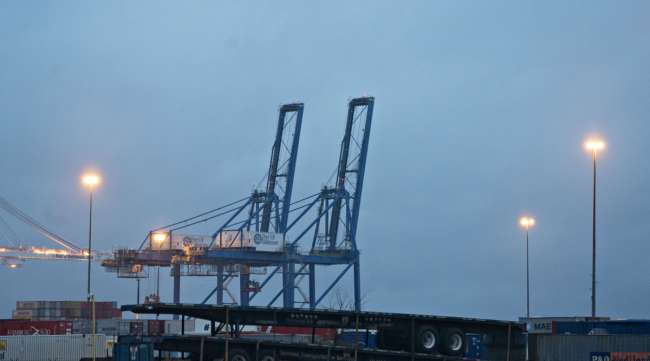Bloomberg News
US Should Distance From Trump-Era Trade, Key EU Official Says

[Ensure you have all the info you need in these unprecedented times. Subscribe now.]
The Biden administration should take a different approach to trade than that of its predecessor to help improve the U.S. economy, a key European Commission trade official said.
The new U.S. government should “distance themselves clearly from the previous administration, which tried to negotiate rules bilaterally and enforce them unilaterally at great cost to the U.S. economy,” Director General for Trade Sabine Weyand said in a virtual discussion June 29. “I think this recognition of economic reality would already be a good starting point.”
“What we need to see is a clear sense of engagement and the recognition that you need to also integrate into the world trading system in a manner which is acceptable for everyone else,” she said.
U.S. Trade Representative Katherine Tai and Commerce Secretary Gina Raimondo are playing key roles in implementing President Joe Biden’s trade policy, which they’re focusing on workers and the middle class. The administration is still reviewing the China policies it inherited from former President Donald Trump — including tariffs on more than $300 billion in annual imports, and a partial trade deal — but has indicated that its strategy will be broadly similar.

Over the past 15 months, the COVID-19 pandemic has caused a consumer shift toward e-commerce, creating new challenges for the supply chain. Host Seth Clevenger speaks with Mark Manduca, chief investment officer for XPO's contract logistics segment, which will soon become a stand-alone company, GXO. Hear a snippet above, and get the full program by going to RoadSigns.TTNews.com.
The Trump administration’s 2018 tariffs on aluminum and steel, which it justified on national security grounds, also remain in place. Tai has defended them, saying in May that they “have really roiled our economy, but were necessary to address a global overcapacity problem driven largely but not solely by China.” The EU is working toward having the U.S. lift the metal imports by the end of the year, EU Ambassador to Washington Stavros Lambrinidis said June 21.
The transatlantic partners are trying to improve their trade relations. At a summit earlier this month, they agreed to extend a truce over aircraft subsidies for five years, creating breathing space to work out issues in the 17-year dispute that saw tariffs levied on $11.5 billion of exports.
Reforming the World Trade Organization’s dispute-settlement process is an area where there is “a large degree of agreement, of convergence between the EU and the U.S.” on what’s needed, Weyand said.
The dispute system has been hobbled since 2019, after the Trump administration unilaterally opposed all new appointments to the seven-member appellate panel, saying it had overstepped its mandate. The Biden administration this week said it would not agree to appoint new members to the body because the U.S. “continues to have systemic concerns” with the functioning of the panel.
“The WTO dispute-settlement function has not helped the partners to find solution. So, I think we need to really streamline process and make sure that this is fit for purpose,” she said.
Weyand said she hopes to see a work program toward getting the dispute process functioning again by the WTO’s next ministerial conference at the end of November.
“We’re not going to kill the process by being overly ambitious, but at the same time, we need to see a real sense of engagement,” she said.
Want more news? Listen to today's daily briefing below or go here for more info:




